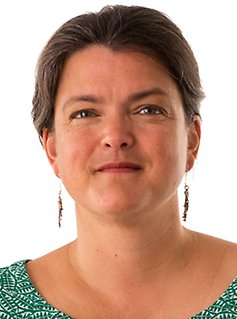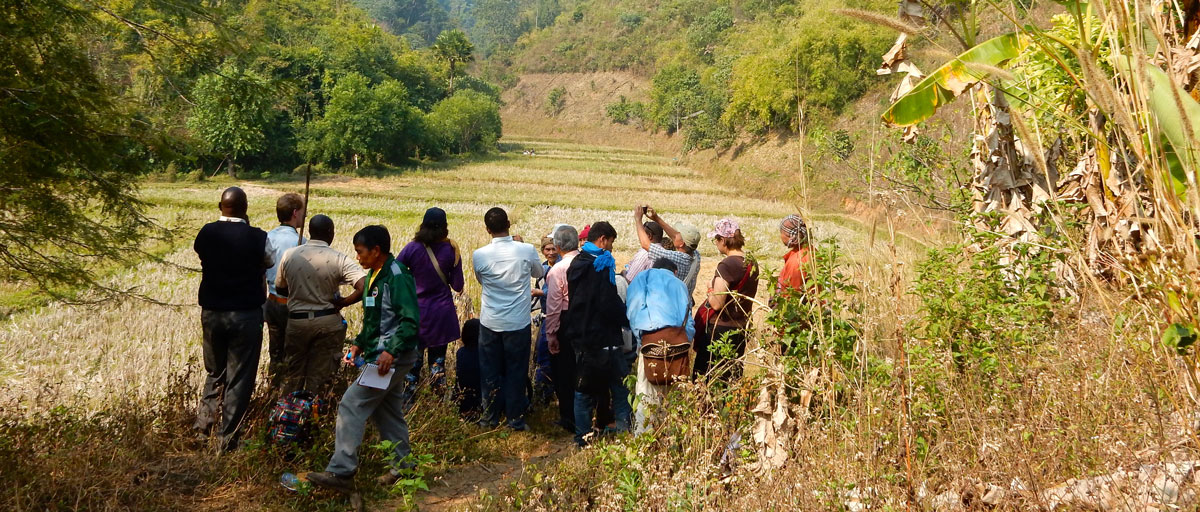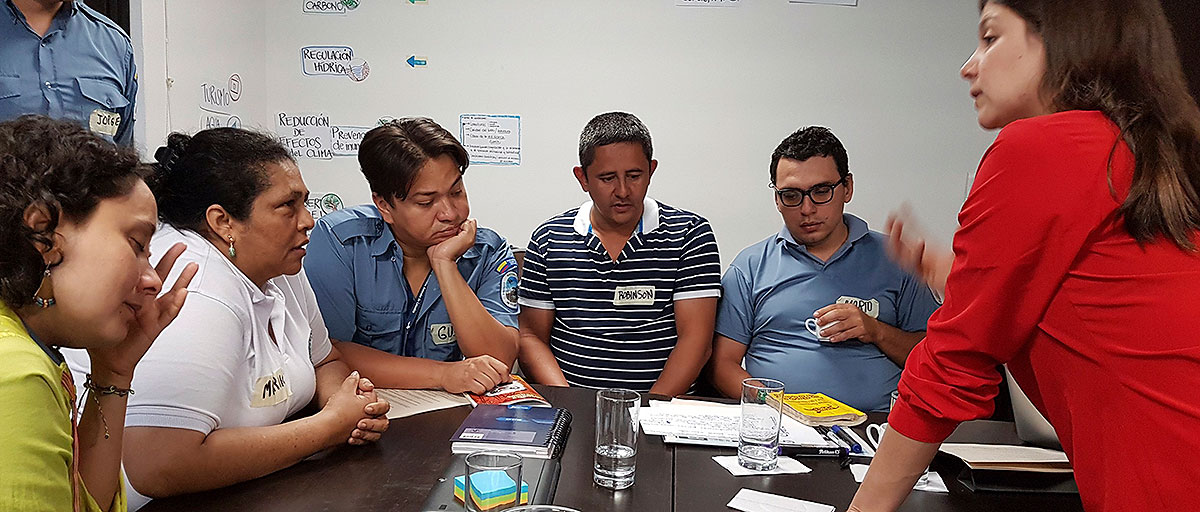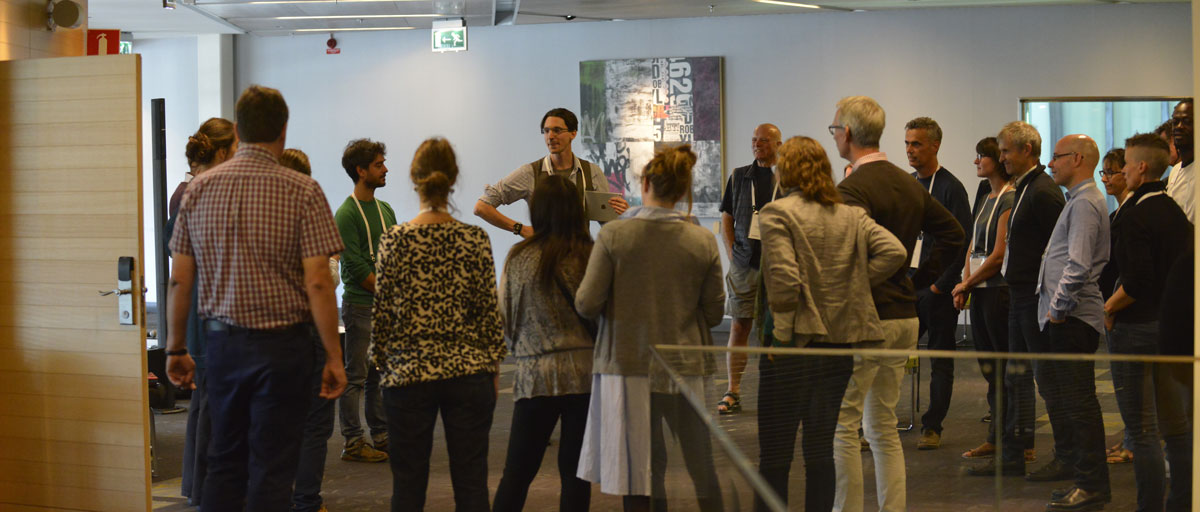Bildtext får vara max två rader text. Hela texten ska högerjusteras om den bara ska innehålla fotobyline! Photo: B. Christensen/Azote
INDIGENOUS AND LOCAL KNOWLEDGE
Why we need a more inclusive approach to transformation research
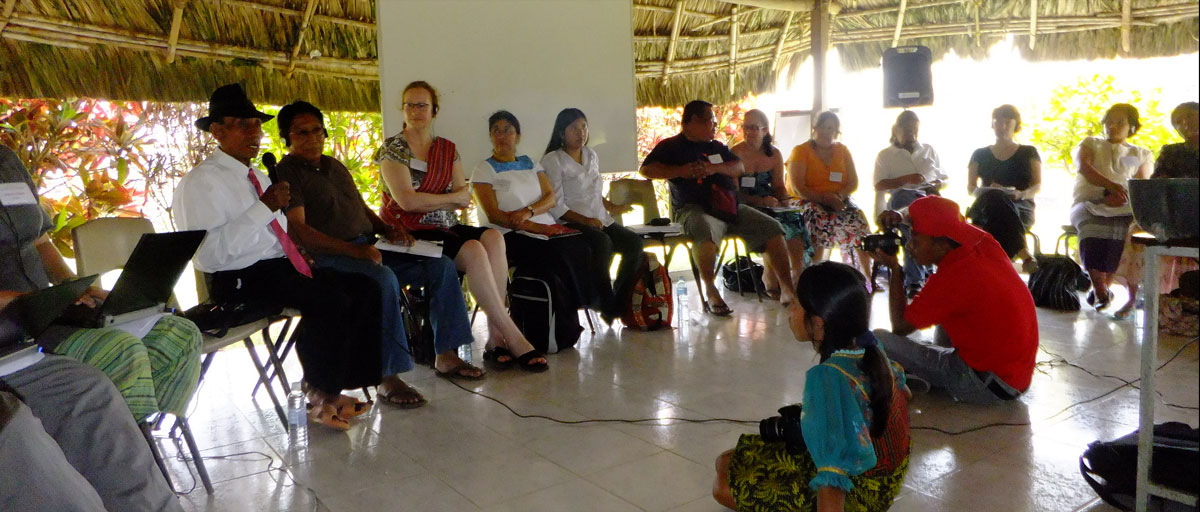
Indigenous and local knowledge is increasingly considered in sustainability science thanks to their holistic understanding of social-ecological systems. Nevertheless, they remain largely absent from transformation research. Photo: P. Malmer
- Most solutions are often influenced by Western scientific knowledge, with insufficient attention to power and plurality
- Indigenous and local knowledge still not acknowledged as relevant knowledge systems
- A more inclusive understanding of transformations is both ethically required and needed
Indigenous and local knowledge still not acknowledged despite offering a more diverse understanding of sustainability transformations
POWER AND PLURALITY: For more than two decades, sustainability transformation research has tried to understand how to foster just, equitable and sustainable futures through large system changes.
However, most solutions are often influenced by Western scientific knowledge, and seem to pay insufficient attention to issues of power and plurality.
Other types of knowledge systems, such as indigenous and local knowledge (ILK), are increasingly considered in sustainability science thanks to their holistic understanding of social-ecological systems.
Nevertheless, they remain largely absent from transformation research.
In a study published in Ecology and Society, centre researcher Maria Tengö along with colleagues from the Institute for Ethics and Transdisciplinary Sustainability Research at the Leuphana University Lüneburg, argue that a more inclusive understanding of transformations is both ethically required and needed to foster sustainability on a local and global level.
Local, place-based character, indigenous and local knowledge can substantially contribute to a more plural understanding of transformations, including the IPBES assessment of transformative change.
Maria Tengö, co-author
Still in its infancy
ILK consists of a rich body of knowledge, practices, and beliefs about human-nature connectedness, and is handed down through generations by cultural, often oral transmission.
Through a systematic literature review of ILK in contexts of transformation, transition, and change, the authors conclude that the engagement of ILK in sustainability transformation research is still in its infancy.
Reasons for this include the lack of acknowledgement of ILK as an equally relevant knowledge system, and the diverse and mostly qualitative methodological approaches to data collection which make investigating and understanding ILK a complex task.
Dismantling power balances
Tengö and her colleagues argue that alternative understandings of transformations have the potential to relate the values, contexts, worldviews, and cultures of indigenous peoples and local communities to the transformative discourse.
This could inform areas such as in environmental governance, climate change, conservation, and resource management research.
The authors point to concrete research activities such as collaboration and consultation with indigenous communities and ILK experts as entry points to alternative ways of describing, understanding and talking about transformation.
They furthermore stress that this type of active engagement is essential to dismantle the power imbalance between ILK and scientific knowledge.
Tengö concludes: "It is important – and valuable – to be inclusive to different kinds of engagement with sustainability transformations to avoid a supremacy of Western scientific knowledge systems in identifying and prioritizing ways forward."
Methodology
To identify the existing body of research on ILK in sustainability transformation research, the authors conducted a systematic literature review. First, the authors searched for primary research articles on ILK and sustainability transformation in the Scopus database, using a search string consisting of two main elements: transformation, and ILK. The search returned 592 papers, of which a final 81 empirical papers were selected.
A qualitative content analysis was then conducted, and the content coded using the software MAXQDA, where general paper characteristics, methodological approach, location of case study and occurrence and use of the terms transformations and ILK and their synonyms were extracted.
Lam, D., E. Hinz, D. Lang, M. Tengö, H. von Wehrden, and B. Martín-López. 2020. Indigenous and local knowledge in sustainability transformations research: a literature review. Ecology and Society 25(1):3.
https://doi.org/10.5751/ES-11305-250103
For more information about the study, please contact Maria Tengö:
